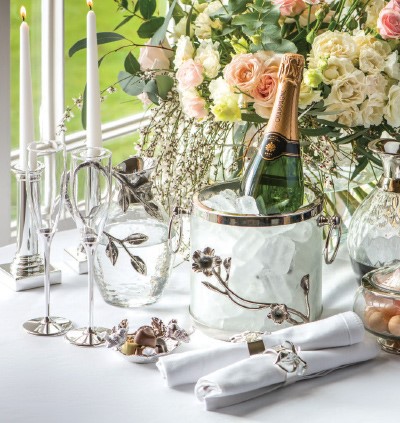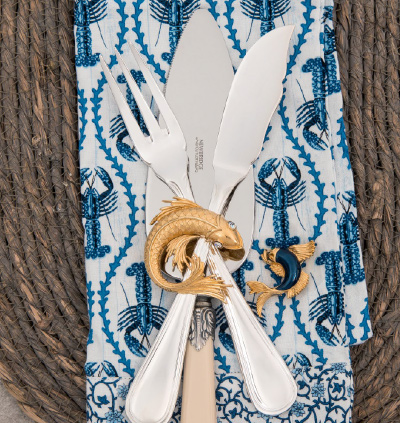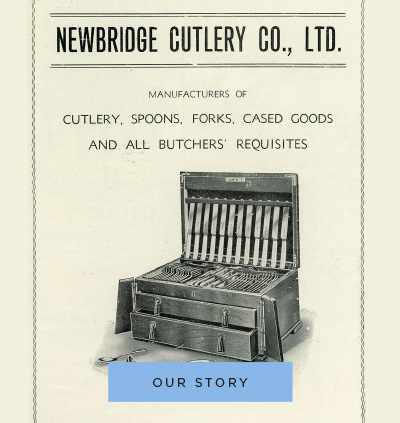Ceramics
To maintain the quality of this product, please follow our care instructions.
Suitable for:
- Dishwasher
- Microwave
Avoid extreme temperature changes. All pottery and china can crack if exposed to sudden changes in temperature, no matter how strong it is.
Please do not place items from the microwave directly into a dishwasher or cold water.
Your Ceramic is suitable for use in the dishwasher always allowing the full cycle to complete.
Whilst every effort is being made to ensure that the Ceramic you have just purchased is in perfect condition, there may be some small variations in the finish as each Newbridge Ceramic product is individually finished. We recommend that you inspect your Ceramic before use.
Glassware
To maintain the sparkling brilliance of this product, please follow our Care Instructions.
Even though this range is dishwasher safe, we do advise that you follow the dishwasher manufacturers guidelines in relation to the use of the programme. Do not wash the glassware under high temperatures. A lukewarm, gentle cycle is recommended.
- Place the glasses inside the dishwasher upside down and separated from one another to prevent chipping or any accumulation of water that may provoke stains.
- Use detergent /salt / rinse aid as recommended by the dishwasher manufacturer. These products prevent the formation of limestone and protect the glass from any possible chemical attack. This is particularly relevant in hard water areas.
- Handwash the larger pieces in lukewarm water with a mild liquid in a basin lined with a towel or a mat.
- Do not spray detergent directly on to the piece.
- Wash one piece at a time.
Glass is sensitive to sudden changes in temperature.
To avoid shattering don't immerse cold glass in hot water. Allow the glass to come to room temperature before submerging. Heat does not transfer evenly throughout large pieces of glassware. Uneven heat transfer may lead to cracks hence it is recommended that large pieces are placed in warm water sideways, to facilitate a more even transfer.
Please note that:
- Glass is not ovenproof
- We do not recommend using glass in the microwave oven because spot heat may break the glass
Proper storage is important to the longevity of glassware and requires only a few simple precautions:
- Store seldom-used crystal in a covered, zippered case fitted with adjustable plastic dividers. Or store crystal in a cabinet located away from kitchen grease. Pollution is inherent in the air.
- To keep glass grease-free, rotate use. Moisture-absorbing material, such as newspaper or excelsior, absorbs the sodium oxide in glass and can cause haze. Such materials are not recommended for storage of glass.
- Store crystal after it is cool and completely dry. When glass is damp or warm, moisture collects on the surface and a film forms that is impossible to remove.
- Glass can stick to glass. Do not store crystal directly on a glass shelf.
- Store stemware with the bowl facing upward. The rim is the weakest part of stemware and when the bowl is stored downward, moisture collects inside, along with shelf odours. When glass is exposed to excessive moisture and repeated changes in temperature, it is subject to deterioration.
- Store glass away from direct sunlight, heating outlets, or air conditioner vents. Because glass conducts sunlight, storage in direct sun creates stress that leads to cracks. Moreover, glass can transfer heat to another glass object, such as a glass shelf, and cause stress.
- Temperature changes cause glass to expand and contract. To avoid chips, leave enough space between the rims of stemware to allow for expansion and contraction. Make sure the bases do not touch. Provide space between glassware and the walls of the storage cabinet.
Glassware (with silver plated stems)
To maintain the sparkling brilliance of this product, please follow our care instructions.
The glass surface is suitable for engraving.
Hand wash only
- The silver-plated stem and base are lacquer coated to give higher resistance to tarnish. To maintain the lustre simply wipe with a dry soft cotton cloth. Do not use polish, abrasives or chemicals to clean the silver-plated stem and base as this will diminish the coating causing the acceleration of the tarnish process.
- Hand wash the glass in lukewarm water with a mild liquid in a basin lined with a towel or a mat.
- Do not spray detergent directly on to the piece.
- Wash one piece at a time.
Glass is sensitive to sudden changes in temperature.
- To avoid shattering do not immerse cold glass in hot water. Allow the glass to come to room temperature before submerging.
- Heat does not transfer evenly throughout large pieces of glassware.
- Uneven heat transfer may lead to cracks hence it is recommended that large pieces are placed in warm water sideways, to facilitate a more even transfer.
Please note that:
- Glass is not ovenproof.
- We do not recommend using glass in the microwave oven because spot heat may break the glass.
- Proper storage is important to the longevity of glassware and requires only a few simple precautions.
- Store seldom-used glassware in a covered, zippered case fitted with adjustable plastic dividers. Or store glassware in a cabinet located away from kitchen grease. Pollution is inherent in the air.
- To keep glass grease-free, rotate use. Moisture-absorbing material, such as newspaper or excelsior, absorbs the sodium oxide in glass and can cause haze.
- Such materials are not recommended for storage of glass.
- Store glassware after it is cool and completely dry. When glass is damp or warm, moisture collects on the surface and a lm forms that is impossible to remove.
- Glass can stick to glass. Do not store your glassware directly on a glass shelf.
- Store stemware with the bowl facing upward. The rim is the weakest part of stemware and when the bowl is stored downward, moisture collects inside, along with shelf odours. When glass is exposed to excessive moisture and repeated changes in temperature, it is subject to deterioration.
- Store glass away from direct sunlight, heating outlets, or air conditioner vents. Because glass conducts sunlight, storage in direct sun creates stress that leads to cracks.
- Moreover, glass can transfer heat to another glass object, such as a glass shelf, and cause stress. Temperature changes cause glass to expand and contract. To avoid chips, leave enough space between the rims of stemware to allow for expansion and contraction. Make sure the bases do not touch. Provide space between glassware and the walls of the storage cabinet.
Fine Bone China
Congratulations, you are now the proud owner of an exquisite piece of Fine Bone China from the Rose Collection by Newbridge Silverware. The cleaning and care of your fine china is very important to ensure the collection keeps its beautiful sheen and remains unbroken, chipped or cracked.
The following tips should help you preserve your fine china Rose Collection.
Handwash Guidelines
- Use only mild detergents - do not use abrasive or harsh cleaning agents.
- Use a sponge or a soft dish cloth- never use abrasive pads to wipe away stains.
- Use only warm water, hot water may cause cracks.
- Slide the china into the water to allow time for the temperature to distribute evenly. Temperature changes can crack or break fine china.
- Never use hot water especially for fine china with a metal trim. The hot water will cause the metal to flake away.
- Line your sink with a soft towel of rubber mat, the entire bottom and sides. This will prevent the china from receiving scratches and dings. Never stack your china in the sink. Wash one piece at a time. This will prevent them from hitting one another.
Dishwasher Guideline
- Ensure to follow the dishwasher manufactures guidelines.
- Wash on a gentle cycle only.
- The 'Short Wash' or 'China and Crystal' cycle is sufficient for normal cleaning.
- Do not over load dishwasher; load China securely on racks so that the pieces do not touch each other.
Protecting your fine china collection from stains
- Remember to rinse shortly after use.
- Tea and coffee cups can be cleaned using a solution of one part hydrogen peroxide, three parts water, with just a drop of clear household ammonia, shortly after use to help aid in preventing the build up of stains. Rinse with clear warm water.
More tips for stains that are already present on your fine china collection
- Use a small dab of baking soda to gently wash away the stains.
- Sprinkle the stains with salt and gently rub away the stains.
- A small amount of cream of tartar on a damp sponge will remove stains.
- Grey stains can be removed by rubbing with a small amount of toothpaste on a soft cloth.
- Stain from hard water or lime can be removed by soaking the china in warm water with citrus rinds such as lemon, grapefruit or orange, overnight.
- This fine china is microwave safe.
Guinness Knives
GENERAL SAFETY
DO
- Always use caution when handling cutlery items. Misuse of cutlery may result in personal injury.
- Ensure that cutlery blades are always sharp. Dull knives are more difficult to use and may cause personal injury.
- Always carry cutlery items with the blade pointing away from your body.
- Always cut or slice away from your body.
- DO NOT
- Do not test sharpness with your hand or fingers; test on a food item.
- Do not allow children to play with cutlery.
- Never try to catch falling cutlery.
CLEANING AND STORAGE
Make sure you are aware how your cutlery should be washed.
DO
- Handwash each piece separately with luke-warm soapy water, rinse and dry thoroughly with a clean, soft towel before first use to remove any oil residue remaining from the manufacturing process and after each use.
- Wash your cutlery immediately after you have eaten. If you leave food etc. on cutlery for any time, corrosive substances within food can cause damage.
- Ensure detergents have thoroughly dissolved in water before immersing your cutlery.
- Dry your cutlery immediately after washing, ensuring all moisture has been removed otherwise rusting can occur.
- Store cutlery in a cutlery block or sheath to protect the cutting edge and prevent personal injury.
- Do periodically clean your cutlery with a stainless steel cleaner to ensure it keeps its lustre.
DO NOT
- Do not use steel wool or harsh abrasives to clean your cutlery.
- Do not scour with an abrasive pad or wire wool.
- Do not allow cutlery to soak for long periods of time in the sink. Some detergents and mineral salts present in tap water can cause pitting or staining if left in contact with stainless steel cutlery.
- Do not use liquid bleaches in washing up water.
- Do not use silver cleaner on stainless steel cutlery.
- Do not expose cutlery to a flame.
- Dishwasher or hot water over 50 degrees Celsius is not recommended.
SHARPENING YOUR KNIFE
DO
- A sharp knife is a safe knife. A dull knife requires you to apply excessive pressure when cutting which increases the likelihood of injury.
- Sharpening stones should be used to occasionally sharpen the knife as it begins to get dull.
- Sharpening steels should be used either before or after every use of your knife to hone the blade and maintain the edge.
- Hold the sharpening steel with the tip down on a cutting board.
- You should maintain an angle of approximately 20 degrees between the knife blade and the steel. Hold the knife with the sharp side facing down and draw the knife down across the steel in an arc.
- Repeat on the other side of the blade.
- Repeat five to ten times on each side of the blade, alternating sides each time.
DO NOT
- Do not use knife sharpener to sharpen knives with serrated edges like bread knives. They should only be sharpened by a professional.
Guinness Stoneware
To maintain the quality of this product, please follow our care instructions. Suitable for:
- Oven
- Freezer
- Dishwasher
- Microwave
Each piece of stoneware is manufactured to the highest standard using quality materials.
Epitomising style and sophistication, the simplistic shapes and clear lines make this collection suitable for all dining and entertaining experiences.
Your stoneware is perfect for baking or re-heating. Before the first use, wash in hot soapy water and dry thoroughly with a soft cloth.
Your stoneware is oven safe up to 230 degrees Celsius / 446 degrees Fahrenheit and should not touch the sides of the oven or the oven door when closed. Use oven mitts for lifting at all times. Always use a heat resistant mat when placing on surfaces. Do not place on any direct heat source, cold or wet surface.
Avoid extreme temperature changes. Always allow your stoneware to cool to room temperature before adding liquid or cleaning.
Always ensure to defrost a frozen dish of food thoroughly in the refrigerator prior to placing in a pre-heated oven. Stoneware can scratch surfaces if moved or dragged.





